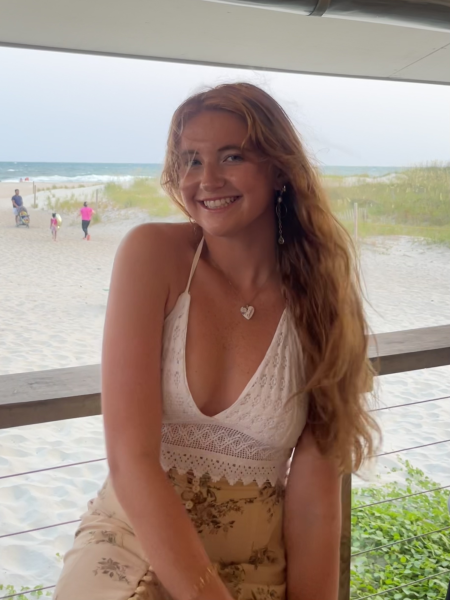David Patteson hosted an evening of reflection Wednesday for his new graphic novel, “The Old Place,” at Watauga Public Library.
“The Old Place” is a graphic memoir of his accounts growing up in Grassy Creek, NC with his grandparents, as well as memoirs of his grandmother’s experiences growing up there during the influenza pandemic.
Patteson is the author of three graphic novels, including “The Old Place,” “The Cult” and “After the Cult,” and is the co-author of “If Roads Change Their Names…” with Rebecca Taylor.

Part one of Patteson’s novel is an anecdotal recount of summers growing up on his grandparents’ farm in rural Grassy Creek, North Carolina. Part two recounts the stories his grandmother shared with him of when she was growing up during the influenza pandemic, otherwise known as the “Spanish Flu.”
Patteson began his discussion by offering audience members to share if any of his work prompts memories of anecdotes in their personal lives.
“The idea of this book is: it’s a kind of letter. It’s addressed to you, but it’s also addressed to me,” he said. “It’s a conversation between the present and the past.”
Patteson began by recounting humorous stories of travels to Grassy Creek gone wrong, riding around on the backs of tailgates, and his brother sneaking out to see girls.
He spoke from memory and shared a flashback with the audience. He described his grandmother as someone who could not hear, yet she heard his brother James sneaking in at night. His grandmother sent his grandfather to look for him, and he found James in his bed but with his boots still on. He was caught red handed.
“She has the ears of a hound dog at night,” Patteson said.

Patteson continued to share stories he had committed to memory of his grandmother and her life growing up in Grassy Creek during the Spanish Flu.
“She told me about how the whole community would just go quiet: people stayed in their homes, and they were scared,” Patteson said.
He described the influenza of 1918 not so differently from experiences many people faced during the COVID-19 pandemic. He retold his grandmother’s stories of grocers dropping off groceries in front lawns and the local Baptist church hosting revivals – a tradition of fervent worship in order to have a spiritual renewal – multiple times a week.
In his final story, he tells us that his grandmother said, one night there in the revival, the local doctor — Doc Waddell — burst into the church in a bear skin coat and was soaking wet from the rain. Waddell walked up the aisle and the minister stepped down.
“I am so busy going around, taking care of you people, that I don’t have time to stop and piss.” Patteson said, recollecting his grandmother’s story.
The churchgoers were shocked by Waddell’s use of language in the pulpit, and they were all so ashamed of themselves that they left on their buggies without saying a word to one another.
As the event came to a close, Patteson reminded everyone that “The Old Place” is not just a personal memoir, but an invitation to celebrate the people in all of our lives.
“If this book does anything, I hope it encourages you to ask questions of the people around you and to listen when they answer,” Patteson said.
Patteson will continue visiting communities to share his work and encourage reflection through storytelling.
His next book discussion is at 11 a.m. at The Museum of Ashe County History on Saturday, April 5, in the historic Ashe County Courtroom.


